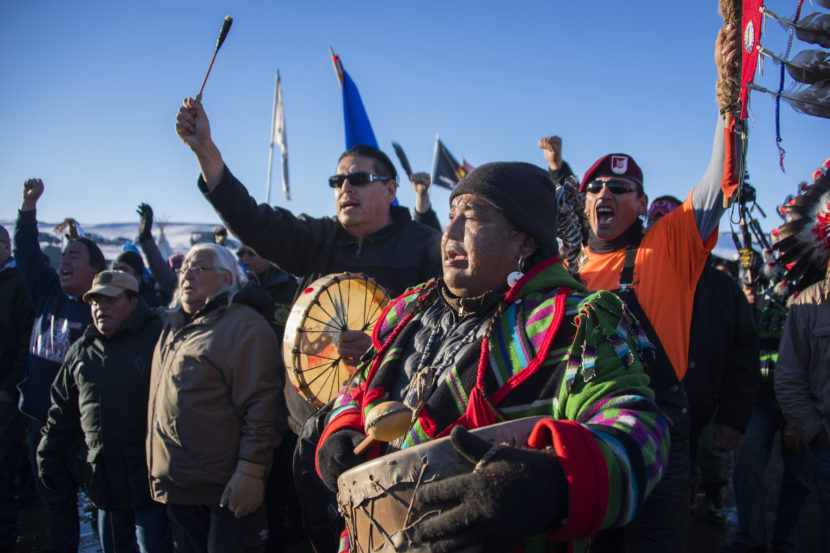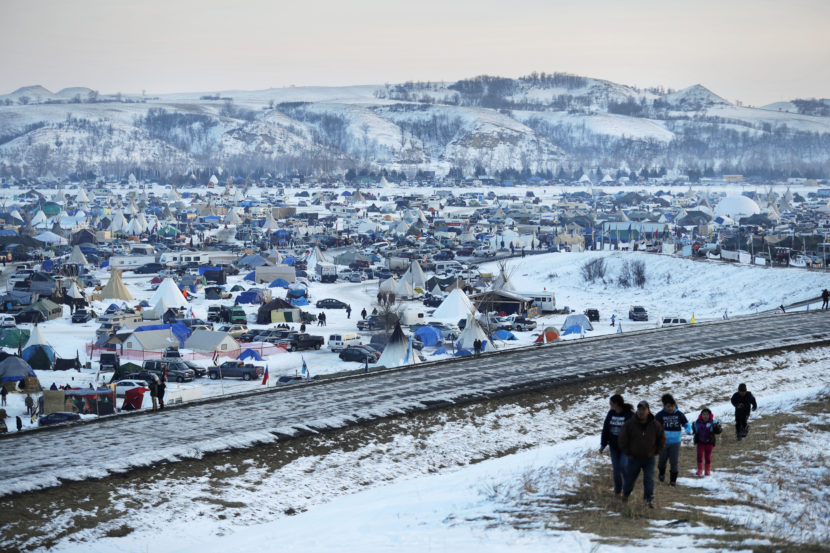
Jim Watson/AFP/Getty Images
The Army Corps of Engineers has decided to deny a permit for the construction of a key section of the Dakota Access Pipeline.
The decision essentially halts the construction on the 1,172-mile oil pipeline about half a mile south of the Standing Rock Sioux Reservation. The decision is also a victory for the thousands of demonstrators across the country who flocked to North Dakota in protest.
“Our prayers have been answered,” National Congress of American Indians President Brian Cladoosby said in a statement. “This isn’t over, but it is enormously good news. All tribal peoples have prayed from the beginning for a peaceful solution, and this puts us back on track.”
Jo-Ellen Darcy, the the Army’s assistant secretary for civil works, said after talking with tribal officials and hearing their concerns that the pipeline could affect the drinking water, it became “clear that there’s more work to do.”
“The best way to complete that work responsibly and expeditiously is to explore alternate routes for the pipeline crossing,” Darcy said in a statement.

David Goldman/AP
The Army Corps says it intends to issue an Environmental Impact Statement with “full public input and analysis.”
In a statement, Standing Rock Sioux Tribal Chairman Dave Archambault II said the tribe welcomed the decision, but he also sounded a note of caution saying he hoped the incoming Donald Trump administration would “respect this decision and understand the complex process that led us to this point.”
Archambault II went on:
“When it comes to infrastructure development in Indian Country and with respect to treaty lands, we must strive to work together to reach decisions that reflect the multifaceted considerations of tribes. Treaties are paramount law and must be respected, and we welcome dialogue on how to continue to honor that moving forward. We are not opposed to energy independence, economic development, or national security concerns but we must ensure that these decisions are made with the considerations of our Indigenous peoples.”
9(MDEwMjQ0ODM1MDEzNDk4MTEzNjU3NTRhYg004))
